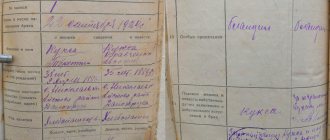The legal significance of marriage is difficult to exaggerate. Creating and strengthening family relationships is a priority of national policy in the Russian Federation.
There is no legally established concept of marriage in the legislation. We propose to interpret the concept and legal meaning of marriage as a legally formalized and voluntary union of a man and a woman, the guideline of which is aimed at creating a family and, in turn, gives rise to not only personal, but also property rights and obligations for spouses.
Any official marriage contains legal features or its characteristic features. These include the following:
- a marriage that is concluded between a man and a woman will be legally significant;
- Legal registration of marriage means that it must be registered with the registry office
- for a marriage to be concluded, there must be a free and necessarily voluntary expression of the will of persons;
- marriage is an exclusively equal union;
According to the provisions of the Family Code, a marriage must be concluded with the intention of starting a family. If this goal was not pursued, then the marriage will be declared invalid (fictitious).
- marriage registration is a full-fledged legal fact, which entails the emergence of mutual rights and obligations of the spouses.
Another purpose of state registration of marriage is its evidentiary value. Based on the entry made in the civil registry book, the spouses are issued a proper marriage certificate and a mark is placed in their passports, which certifies the status of legally married persons.
The main role of legal registration of marriage
Not a single law in Russia prohibits the living together of a man and a woman in the absence of official registration of marriage with the relevant authorities. However, this is a personal matter and the choice of each citizen and currently does not entail any legal consequences that would be based on the norms of the Family Code.
Let's consider an example from legal practice. The citizen turned to a lawyer for competent advice. The man with whom they lived together for 15 years died. They did not intend to register an official marriage, but lived together in harmony and friendship. Both of them worked, both had a decent income. During their family life, they acquired many expensive things. A deposit was created in the name of the late husband, which they regularly replenished together. The citizen believed that this was only their common property and she would remain the only heir. She, of course, knew that once upon a time her husband was married and the marriage was not officially dissolved. But he and his ex-wife did not live together or even see each other for a very long time. And now, she has arrived and claims ½ of the inherited property. According to the law, formally the former, but legally the present spouse will be the heir by law. Actual cohabitation, even for such a long time, does not give rise to any inheritance rights, unless, of course, a will is drawn up.
Also, with such cohabitation, unfortunately, there is no right of common joint ownership of jointly acquired property. An officially registered marriage gives the surviving spouse the right to purchase a survivor's pension, collect alimony for children born in the marriage, and so on. In the case considered, the citizen has the right to demand the allocation of a share in the inheritance mass, proving that she also invested money in the account of her cohabitant. In other words, a relationship of shared ownership arises.
1. State registration of marriage was established to ensure the stability of relations between a woman and a man, to protect the rights and interests of spouses, their children, as well as in the interests of the state and society.
2. State registration of marriage is carried out solemnly.
(Part 2 was excluded in accordance with Law No. 524-V dated December 22, 2006).
3. State registration of marriage is certified by a Marriage Certificate, a sample of which is approved by the Cabinet of Ministers of Ukraine.
Comment:
1. Legal registration of a marriage is carried out through its state registration, which has a constitutive (law-creating) significance, since only a marriage registered in the prescribed manner gives rise to legal consequences. State registration is a mandatory element of marriage, which is established to ensure the stability of relations between a woman and a man, to protect the rights and interests of spouses, their children, as well as in the interests of the state and society.
Since the state is interested in the strengthening and stability of marriage, it establishes control over the conclusion of marriage and recognizes as valid only a marriage registered with the state body of the Civil Registry Office, with the exception of cases of marriage according to religious rites before the formation or restoration of state bodies of the Civil Civil Registry Office (Article 21 of the IC of Ukraine). Thus, from the precise moment of marriage registration, the rights and responsibilities of a man and woman as spouses arise. At the same time, the right to state registration of marriage belongs to a certain body - the state civil registration body.
In accordance with the current legislation, marriage registration is carried out in a solemn atmosphere only at the request of the spouses (paragraph 2, part 1, article 33 of the Family Code).
2. Registration of marriage, which is an act of state recognition of marriage, ensures compliance with the conditions of its conclusion, which meets the state and public interests and the interests of spouses and children. At the same time, state registration of marriage has not only a constitutional significance (see commentary to Article 21 of the Family Code), but also an evidentiary value, since the vital records that were made by the Civil Registry Office, before they are canceled in court, are indisputable evidence of the acts certified by them, those. according to Part 1 of Art. 61 of the Code of Civil Procedure, circumstances recognized by the parties and other persons participating in the case are not subject to proof.
3. In confirmation of the above regarding the state’s provision of great importance to marriage registration, part 3 of the commented article provides that state registration of marriage is confirmed by a Marriage Certificate, a sample of which is approved by the Cabinet of Ministers of Ukraine.
A marriage certificate is necessary to exercise certain rights of a person (for example, the right to inheritance, the right to alimony, in certain cases - to a pension, etc.).
If the civil registry office has not preserved registration records or the restoration of such a record by the relevant state civil registry office has been refused, then, upon the application of an interested party, the court may establish the fact of marriage registration according to the rules of Art. 256 of the Code of Civil Procedure of Ukraine (establishment of facts of legal significance) in the order of special proceedings.
Certain issues related to marriage registration
In legal practice, there are many issues that future or current spouses resolve through cooperation with legal experts. Even a banal marriage sometimes requires additional consultations with lawyers or advocates.
Also, quite a lot of practical questions arise when drawing up a marriage contract, termination and dissolution of marital relations, restoration of the rights of a spouse recognized as missing, and in situations related to the recognition of marriage as invalid.
As a rule, people consult at the stage when a conflict has already taken place, but quite often they resort to the advice of lawyers before unpleasant situations arise in order to be safe from possible risks or to enlist the support of a specialist.
When concluding a marriage, in the Russian Federation and, in particular, in Moscow, many people ask questions about marriage with foreign citizens from both near and far abroad. In each case, there are certain problematic issues that not everyone knows.
Upon divorce, quite often problems also arise with foreign citizens, especially in matters of alimony payments or determining the place of residence of joint children, as well as questions regarding the division and maintenance of jointly acquired property.
On the issues of restoring marital relations after recognizing a person as missing or dead, there is also a huge practice of cases. Quite often situations arise when the court’s rights are restored, but the civil registry office’s decision is not enough, and they require additional papers or proper interpretations in decisions. These actions are taken by government agencies, as a rule, for the purpose of reinsurance, in order to avoid the emergence of other conflicts on the part of other interested parties.
Dissolution of a marriage through the courts
The moment of official dissolution of the marriage union through the territorial body of the court is confirmed by its decision. Based on the results of the divorce process, each party receives one copy of the decision. However, a long period of time passes between its entry into legal force and the issuance of a divorce certificate. Therefore, the question arises when exactly the moment of final divorce is recorded.
The Family Code in Article 25 clearly defines this point:
- Paragraph 1 contains the thesis: in the case of a divorce case being considered through a territorial court body, the official moment of termination of the marriage is the day when the decision comes into legal force.
- Paragraph 2 states: a decision to terminate a marriage issued by a court is subject to mandatory registration with the territorial registry office.
See also:
Legal institution of annulment of marriage
The Code regulates that the territorial judicial body undertakes to send an extract from the decision to the territorial registry office within three days. For representatives of a married couple, until they receive a divorce certificate, there is a restriction on entering into a new union with another civil person. A registration certificate can be obtained from the territorial authority at the place of residence of one of the parties.
The Family Code contains completely new provisions of family law that regulate the moment of official dissolution of a marriage. Previously, Article 40 of the Code on Family and Marriage was in force, which contained the following information: a family union is recognized as dissolved only after making an entry in the territorial registry office. The article did not contain a specific deadline for registering a decision in accordance with current legislation.
The family union is considered dissolved from the moment the divorce decision enters into legal force
The free formulation of the question about the timing contributed to the situation when spouses, having a document on dissolution of the marriage union in court, continued to be officially registered as married until the decision was transferred to the registry office. Thus, uncertainty arose at what point the family union was officially considered dissolved.
As soon as the new edition of the Family Code was approved at the legislative level, the moment of termination of marriage during its dissolution through the territorial body of the court received clear legislative characteristics in Article 25. Amendments to the law were made in 1996. Therefore, marriage unions dissolved before this period are considered legal only from the moment the information is entered into the territorial state registration authority (registry office).
In the absence of such a certificate, the divorce is declared invalid, and the married couple continues to be legally married with all obligations and rights. Consideration of a divorce case after 1996 allows the family union to be considered dissolved from the moment the court decision entered into legal force.
See also:
How can spouses with children obtain a divorce through the registry office?
Digital library
Social work / Family law / 2.2 MARRIAGE REGISTRATION AND ITS IMPORTANCE. PROCEDURE FOR MARRIAGE REGISTRATION
The fact of marriage registration is certified by a “Marriage Certificate” in the form established by the state. With a registration certificate, the state confirms that this union, this agreement receives public recognition and protection. The rights and obligations of spouses legally arise from the date of state registration of marriage in the civil registry office.
Persons who decide to get married submit a joint application for marriage in writing to the civil registry office. State registration of marriage is carried out by any civil registry office on the territory of the Russian Federation at the choice of the persons entering into marriage.
The joint statement must confirm
· mutual voluntary consent to marriage;
· absence of circumstances preventing its conclusion.
In accordance with Art. 26 of the Federal Law “On Acts of Civil Status”, the following information must also be indicated in the joint application for marriage:
· last name, first name, patronymic, date and place of birth, age on the day of state registration of marriage, citizenship, nationality (indicated at the request of the persons entering into marriage), place of residence of each person entering into marriage;
· surnames chosen by persons entering into marriage;
· details of identity documents of those entering into marriage.
Persons getting married sign a joint application for marriage and indicate the date of its preparation. Simultaneously with filing a joint application for marriage, you must present:
· identification documents of those entering into marriage;
· document(s) confirming the termination of the previous marriage, if the person(s) was previously married;
· permission to marry before reaching marriageable age if the person(s) entering into marriage is a minor
For state registration of marriage, including the issuance of a certificate, a state fee is charged in the amount of one minimum wage (minimum wage).
If one of the persons entering into marriage is unable to appear at the registry office to submit a joint application, the will of the persons entering into marriage may be formalized in separate applications.
The signature of the application of a person who is unable to appear at the registry office must be notarized.
Marriage is concluded in the personal presence of persons entering into marriage after a month has passed from the date of submission of their application to the civil registry office.
If the persons entering into marriage (one of the persons) cannot appear at the civil registry office due to serious illness or other valid reason, state registration of the marriage can be carried out at home, in a medical or other organization in the presence of persons getting married (Article 27 of the Federal Law “On Civil Status Acts”).
If there are good reasons, the civil registry office at the place of state registration of marriage may allow marriage to be concluded before the expiration of a month, and may also increase this period, but not more than by a month.
If there are special circumstances (pregnancy, birth of a child, immediate threat to the life of one of the parties and other special circumstances), the marriage can be concluded on the day the application is submitted.
Thus, marriage can be concluded at least on the day of filing the application, and at most two months after filing the application.
At the request of persons entering into marriage, state registration of marriage can be carried out in a solemn atmosphere.
The fact that marriage is recognized only as voluntary and free means that any coercion into marriage will lead to its recognition as invalid.
So, from paragraph 3 of Art. 1 of the RF IC it follows that official marriage, marital union is allowed only between a man and a woman. Same-sex marriages (between only men or only women) are not provided for by Russian legislation.











